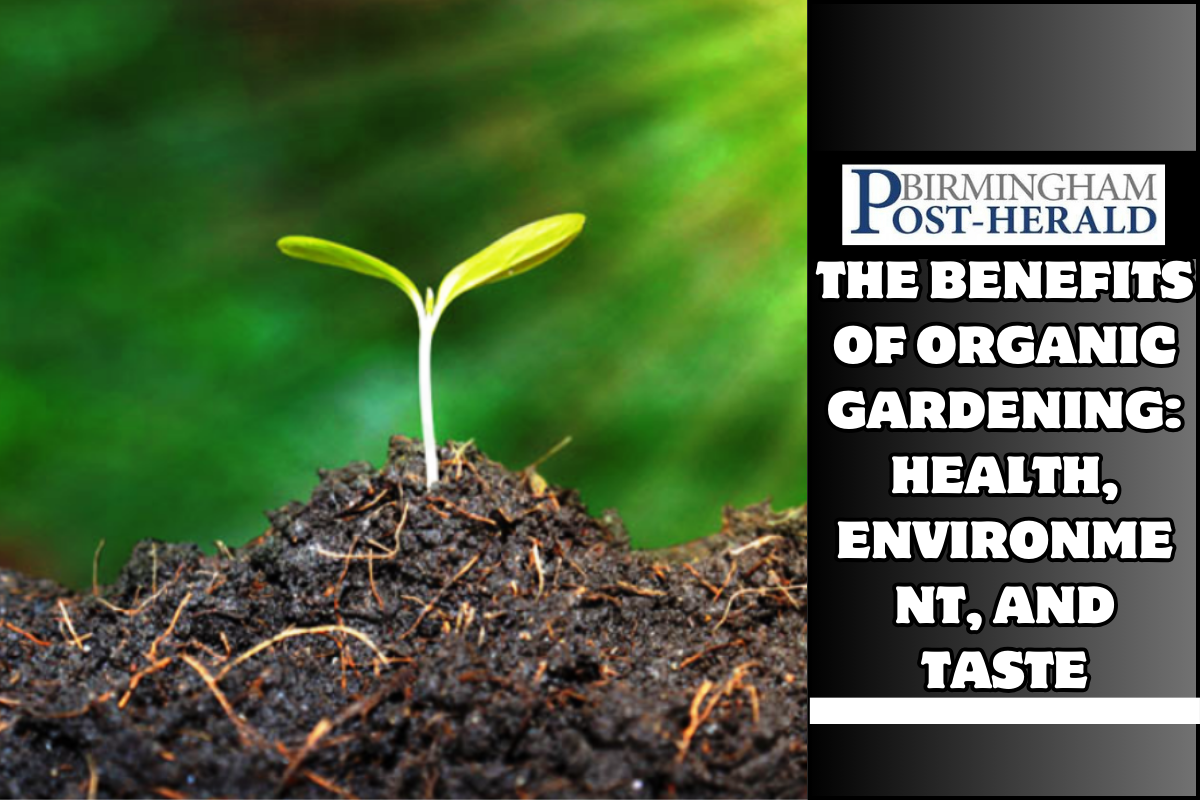The Benefits of Organic Gardening: Health, Environment, and Taste:-The term “organic gardening” refers to a comprehensive approach to gardening that places an emphasis on health, environmental sustainability, and flavor.
The Benefits of Organic Gardening: Health, Environment, and Taste
Organic gardening extends beyond simply cultivating fruits, vegetables, and herbs. We are going to discuss the numerous advantages of organic gardening in this post. These advantages range from the good impact that organic gardening has on personal well-being to the contributions that it makes to a better planet and more delectable harvests.
1. Health Benefits of Organic Gardening
- Reduced Exposure to Chemicals Because organic gardening does not include the use of synthetic pesticides, herbicides, or fertilizers, the danger of chemical exposure to gardeners and consumers is significantly reduced.
- Nutrient-Rich Produce Because organic farming procedures place a higher priority on the health of the soil, the fruits and vegetables that are produced as a result are typically more abundant in vital nutrients, vitamins, and minerals.
- Enhanced Taste and Flavor: Many people who are passionate about organic gardening attest to the fact that organically grown produce has a better taste and flavor. They attribute this to reasons such as the enhanced quality of the soil and the slower, more natural growth of organic plants.

Also Read:-10 Essential Tips for Starting Your First Garden
2. Environmental Benefits of Organic Gardening
- Soil Health and Fertility: Organic gardening techniques, such as crop rotation and composting, enhance soil health and fertility, which in turn helps to cultivate a subterranean ecosystem that is thriving.
- By avoiding the use of synthetic chemicals and adopting sustainable gardening practices, organic gardeners contribute to the reduction of environmental impacts such as pollution, soil erosion, and water contamination.
- Support for Biodiversity: Organic gardens frequently provide as safe havens for a variety of wildlife, including birds, insects, and other animals, ultimately helping to the preservation of biodiversity and maintaining ecological equilibrium.
3. Taste Benefits of Organic Gardening
- Enhanced Flavor Profiles: Many organic gardeners and chefs are adamant about the superior flavor and aroma of organically grown fruits, vegetables, and herbs. They attribute this to factors such as the quality of the soil and the natural cultivation methods that are used.
- Organic gardening emphasizes a greater relationship to the seasons and the natural rhythms of plant growth, which results in produce that reflects the distinctive flavors of each season. Seasonal variation is a term that describes the results of organic farming.
- Organically cultivated products frequently demonstrate a depth of taste and complexity that enhances culinary creativity. This is true for heirloom tomatoes that are bursting with sweetness as well as fragrant basil that is loaded with essential oils. All of these ingredients are examples of culinary versatility.
Conclusion
Growing plants organically provides a number of advantages that go well beyond the confines of the garden garden. People are able to acquire a deeper appreciation for the food that they raise and consume when they engage in organic activities since these methods promote the health of both people and the earth. Incorporating organic gardening into your life is a journey that is not only enjoyable but also nourishing to your body, mind, and spirit. This is true whether you are caring to a little backyard plot or creating a community garden.
